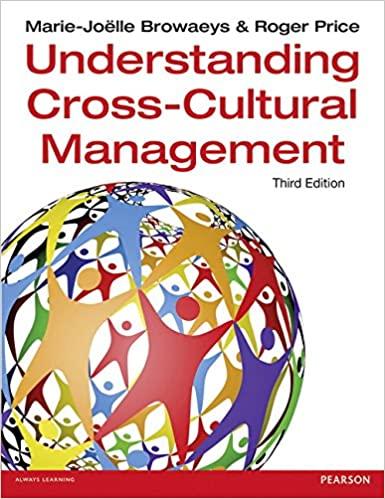As IKEA, the worlds largest furniture retailer, pursues its global expansion, a number of events have occurred
Question:
As IKEA, the world’s largest furniture retailer, pursues its global expansion, a number of events have occurred which threaten the company’s long-cherished culture. In this activity you will first be asked to determine the values at the heart of IKEA’s culture and then to respond to questions on an article which examines the problems which the company has experienced in maintaining its values while expanding its operations globally.
A) Read the following extract from IKEA’s website and another from its 2012 Annual Report, then answer the questions following on from the extracts.
Our Responsibility
Our businesses are guided by our values and by our Småland legacy to make the best possible use of the limited resources available.
We have a long term perspective on our business. For us there is no contradiction between profitability and responsibility. On the contrary, we see responsibility and profitability depending on each other. We can only ensure long term profitability by acting in a way that creates trust among stakeholders, and we can only ensure our ability to take long term responsibility by being profitable.
We strive to create shared value in relation to our primary stakeholders–franchisees, employees, customers and suppliers, and in relation to society.
We’ve come a long way. We do however realise that our journey has just started and that most things still remain to be done. We cannot solve everything at once, but we are committed to be part of the solution.
In practice, our values encourage a constant desire for renewal and a willingness to make change, as well as a cost-conscious mind-set in all areas of operation. Trying new solutions, daring to be different, humbleness in approaching our task and simplicity in our way of doing things are also cornerstones of the Inter IKEA culture. Our spirit is based on a belief that no method is more effective than a good example. We believe that each co-worker is important, that all of us have a responsibility, and that it is by working together, ‘tillsammans’ in Swedish, that we really make a difference.
IKEA values have proven to be viable in an international context and we strongly believe that they are one of the most important factors behind our achievements. By keeping them alive and well-rooted, it will help us continue to turn future challenges into opportunities.
Questions:
1. How would you define the values alluded to in both extracts?
2. In what way could IKEA’s culture be described as unique?
3. In the final paragraph of the website extract is the statement ‘We cannot solve everything at once’. What do you think IKEA is trying to solve exactly? What impediments to a solution are implied in the two extracts?
B) Now read the following article written at a time when IKEA had been encountering a number of assaults on its corporate culture. Then answer the questions which follow on from the article.
By Richard Milne
Mr Kamprad founded [IKEA] in 1943 just to the north of Älmhult, a community surrounded by dense forests and little else. Fifteen years later he opened the fi rst shop in the town in what would become a global empire of fl at-pack furniture.
Ikea is one of the most extraordinary success stories in postwar European business. Famed for its Scandinavian chic but cheap tables, bookcases and beds, its self-assembly wares inspire Now the privately held group is looking to cement its status as the world’s biggest furniture retailer by increasing the number of stores by 50 per cent by the end of the decade and almost doubling its sales and customer numbers.
But the expansion raises questions of whether the unique corporate culture forged in Älmhult is fully steeled for such rapid growth from China to the Dominican Republic. Ikea has suff ered a series of high-profi le stumbles, ranging from a corruption scandal in Russia to allegations of spying on staff and customers in France and airbrushing women out of its catalogue in Saudi Arabia.
Steen Kanter, a senior executive at Ikea from 1971 to 1994, says: ‘I’m concerned about Ikea's culture. I think the foundation of Ikea is its culture and I hope it doesn't go by the wayside.’
Mr Kanter, who now runs Kanter International, an advisory firm, says he was in an Ikea store in Boston this month. ‘I don’t feel the same spirit when I go into Ikea. There is a danger that Ikea just turns into another big impersonal company’, he adds.
admiration and frustration in equal measure......
Questions
1. The text refers to Mr Ohlsson’s contention that ‘such a strong culture allows senior executives to have deep trust in country or store managers’. Why can this culture be called ‘strong’ and how do you think it engenders trust among senior executives in their managers?
2. Mention is made in the text of the tension between IKEA’s corporate culture and national culture. Which of the ‘high-profile stumbles’ mentioned in the text do you think offer the clearest indication of this tension in terms of cultural values? Explain your choice.
3. IKEA is said to pay little attention to the tenet ‘Think global, act local’. To what extent do you think the company’s attitude is justifiable bearing in mind its strong global presence in the furniture market?
Step by Step Answer:

Understanding Cross Cultural Management
ISBN: 9781292015897
3rd Edition
Authors: Marie Joelle Browaeys, Roger Price





